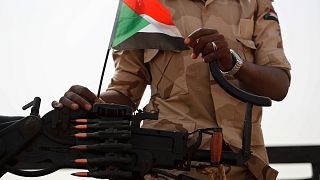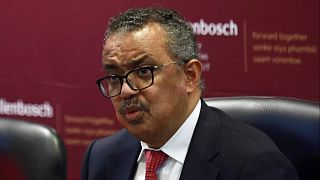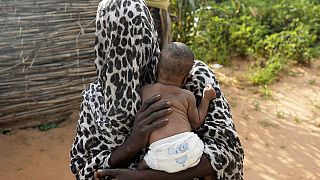Sudan
UN Secretary-General Antonio Guterres on Thursday called for a ceasefire of "at least three days" in Sudan over Eid al-Fitr, which marks the end of the holy month of Ramadan.
"We are living a very important moment in the Muslim calendar. I think this is the right moment for a ceasefire to hold," Guterres told reporters, adding: "We have been in contact with the parties, we believe it is possible."
The pause would "allow civilians trapped in conflict zones to escape and to seek medical treatment, food and other essential supplies," Guterres added.
More than 300 people have been killed since the fighting erupted Saturday between forces loyal to Sudan's army chief Abdel Fattah al-Burhan and his deputy, Mohamed Hamdan Daglo, who commands the paramilitary Rapid Support Forces (RSF).
The Eid ceasefire "must be the first step in providing respite from the fighting and paving the way for a permanent ceasefire," Guterres said.
"This ceasefire is absolutely crucial at the present moment," he added.
Some of the fiercest battles have taken place in the capital Khartoum, a city home to five million people, most of whom have been cloistered in their homes without electricity, food and water.
"The cessation of hostilities must be followed by serious dialogue allowing for the successful transition, starting with the appointment of a civilian government," Guterres said.
Sudanese are fleeing Khartoum, hauling whatever belongings they could carry and trying to get out of the capital, where forces loyal to the country's top two generals have been battling each other with tanks, artillery and airstrikes since Saturday.
Leaving Khartoum has become the last resort after food supplies started dwindling as going out to restock became too dangerous.
So sharing among neighbours has become essential.
At Shendi bus station people rushed to buses in order to flee the capital.
Tickets price had surged since the fighting started, the normal ticket to River Nile State (some 350 km from Khartoum) used to cost around 10,000 Sudanese pounds (around $18) now costs 40, 000 Sudanese pounds (around $70).
"The situation is really bad, this is not right, not good. The citizens are totally taking advantage of each other," said passenger al-Nour Abdallah.
There are no signs of an agreement as Sudan's military ruled out negotiations with rival paramilitary force on Thursday, saying it would only accept its surrender as the two sides continued to battle in central Khartoum and other parts of the country, threatening to wreck the latest attempt at a cease-fire.
Residents have been desperate for at least a temporary cease-fire so they can stock up on supplies or move to safer areas.
Nearly 12 million of Sudan’s 46 million population live in the capital area, where most of the fighting is centered.













00:50
Cameroon: Biya reshuffles top military ranks days after re-election bid
00:11
US, European allies agree August deadline for Iran nuclear deal
Go to video
UN Special Rapporteur calls for concrete action on 'genocidal' Gaza occupation
01:07
Only 35% of sustainable development goals on track to meet target, UN says
Go to video
Almost 300 killed in wave of violence in Sudan’s North Kordofan
01:07
UN-Russia agricultural export memorandum will not be extended